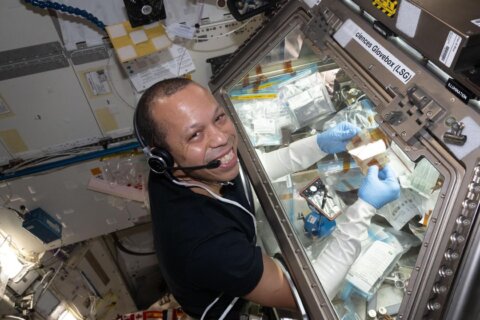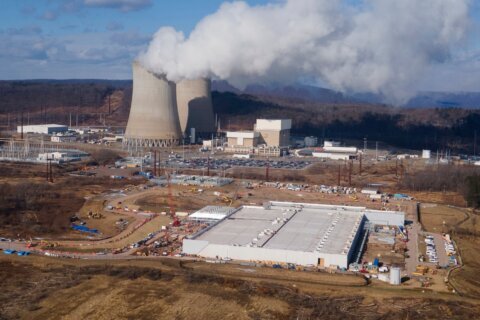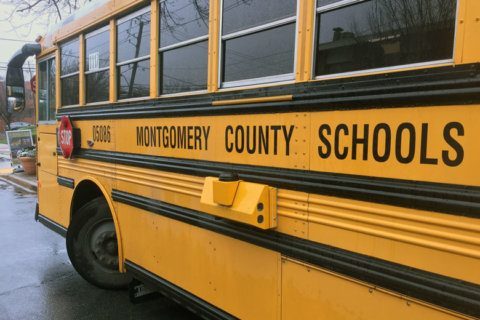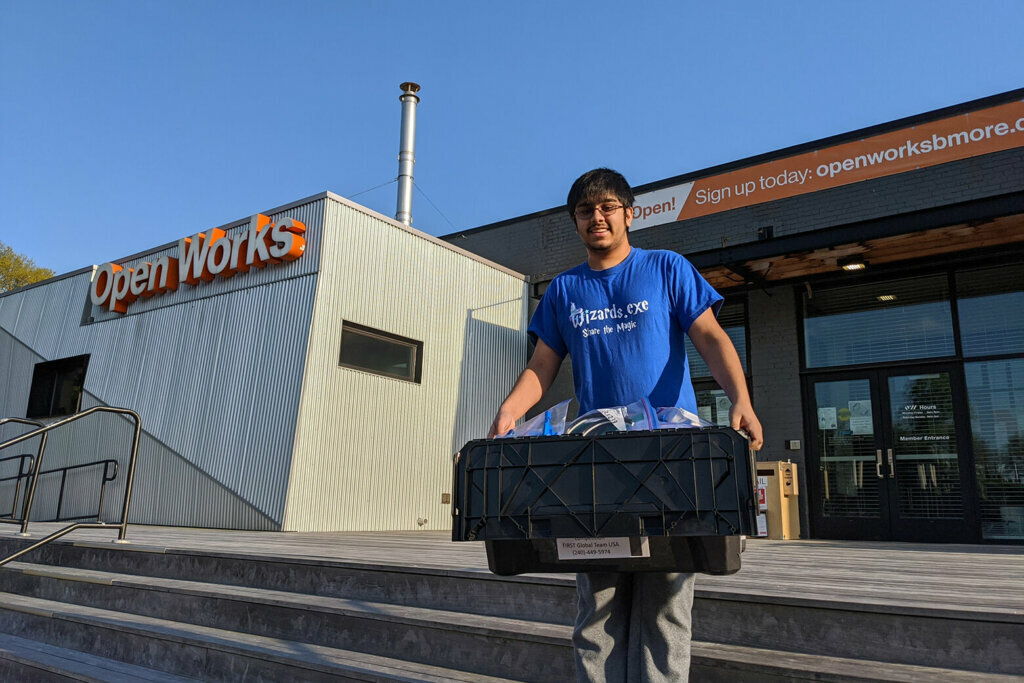
An enterprising high school junior from Rockville, Maryland, is using the tech for his robotics team to create potentially life-saving equipment for frontline workers during the coronavirus pandemic.
Arjun Oberoi had been running a high-tech team out of his house.
“Since we run out of my house, we have numerous 3D printers, as well as other fabrication like a CNC machine, laser cutter,” Oberoi told WTOP.
He had been reading about shortages of personal protective equipment since the COVID pandemic took off.
“I knew I wanted to help, so I searched online on how to make face shields and other personal protective equipment,” Oberoi said.
That search led him to Open Works — a maker space in Baltimore. They had put out a call for people with 3D printers to fabricate face shields.
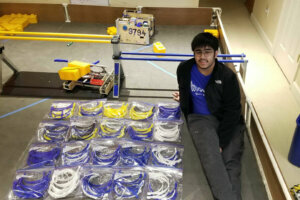
“I started running my robotics team’s 3D printers 24/7 in order to make face shields for Open Works,” Oberoi said. “I knew that if I reached out to the community, we could have a much larger impact.”
The response was “tremendous” after he went to social media for support.
“Numerous people offered to donate money to this effort, and people with 3D printers reached out to me asking how they could start 3D printing face shields,” Oberoi said.
He also got in touch with his robotics teacher at Montgomery Blair High School in Silver Spring, John Kaluta, who provided two of the school’s 3D printers to use while it was closed.
Eventually, Oberoi switched over to what he calls a more efficient design that he could produce in his own home after requests for full face shields. He also brought in more people to help.
“We started donating these to hospitals, nurses, doctors, dentists, nursing homes, surgeons and other first responders,” Oberoi said.
His house became “HQ” for Rockville Face Shields teammates to bring PPE so they could be distributed.
By the middle of summer, Oberoi said demand for the face shields started to lower, so they switched to making ear savers, which “which essentially relieve the stress of wearing a mask for a long time on your ears.”
“And by the end of the summer, we I’d created a large community of over 10 groups of people, and over 15 3D printers helping,” Oberoi said. “We had people assembling face shields, 3D printing, making UV sterilization, box hole punching transparencies and distributing the face shields.”
They made more than 2,400 face shields and over 3,000 ear savers, which were distributed.
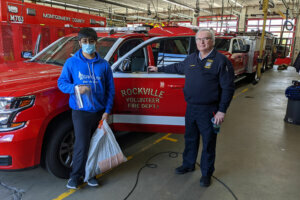
Oberoi said he loves the idea of contributing, and maybe he even helped save some lives.
“I feel like it’s an obligation for me to do this, because I’m one of the few people that has access to the machines that can help other people. So I feel like I should be doing this,” he said.
Building a community was important too.
“When it was just me, we were making maybe 100 face shields a week,” Oberoi said, but once more people got involved, “we created an organized effort where we’re making 40, 50, 60 face shields a day. And it was a much more efficient way of working to fight the pandemic.”
Oberoi’s efforts aren’t limited to the D.C. area. He has been mentoring a robotics team from Comoros — an island country in the Mozambique Channel between the eastern coast of Africa and Madagascar.
They had been getting hit by COVID, Oberoi said.
“They had been making contactless hand sanitizer stations. And I was just chatting on how I was making face shields and showed them how they could also make face shields … using materials that they also had access to.”
Oberoi’s advice for those of us in Washington?
“I want people to know that they should try to help, but you do what you can, you don’t have to help in order to do good during the pandemic. Just staying home is enough.”
Learn more at Rockville Face Shields.
WTOP’s Melissa Howell contributed to this report.
This article is part of WTOP’s TOP Kids program, where kids in the D.C. area are recognized for the amazing things they do. The winners are awarded $500. The program is sponsored by Northwest Federal Credit Union. Nominate a TOP Kid you know here.


